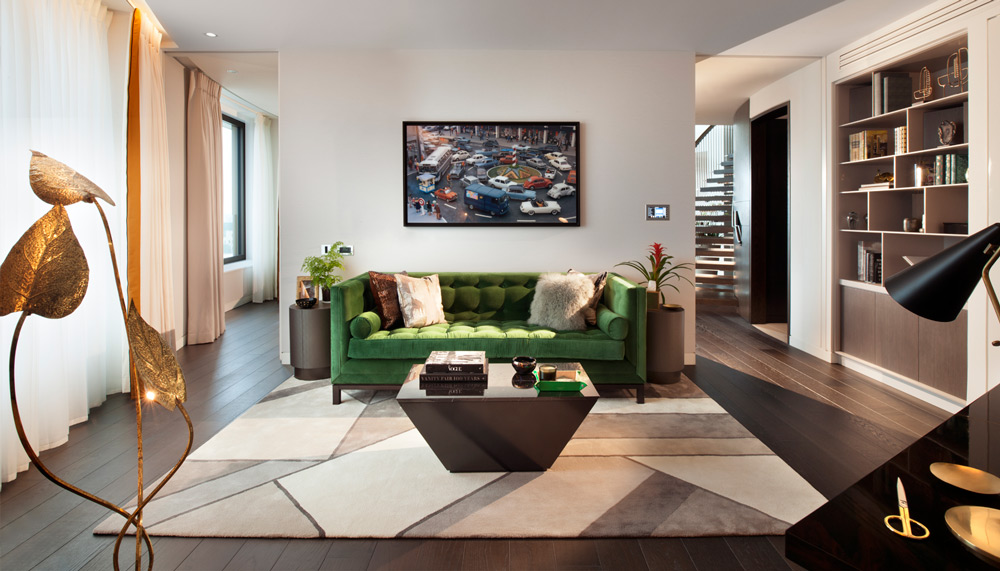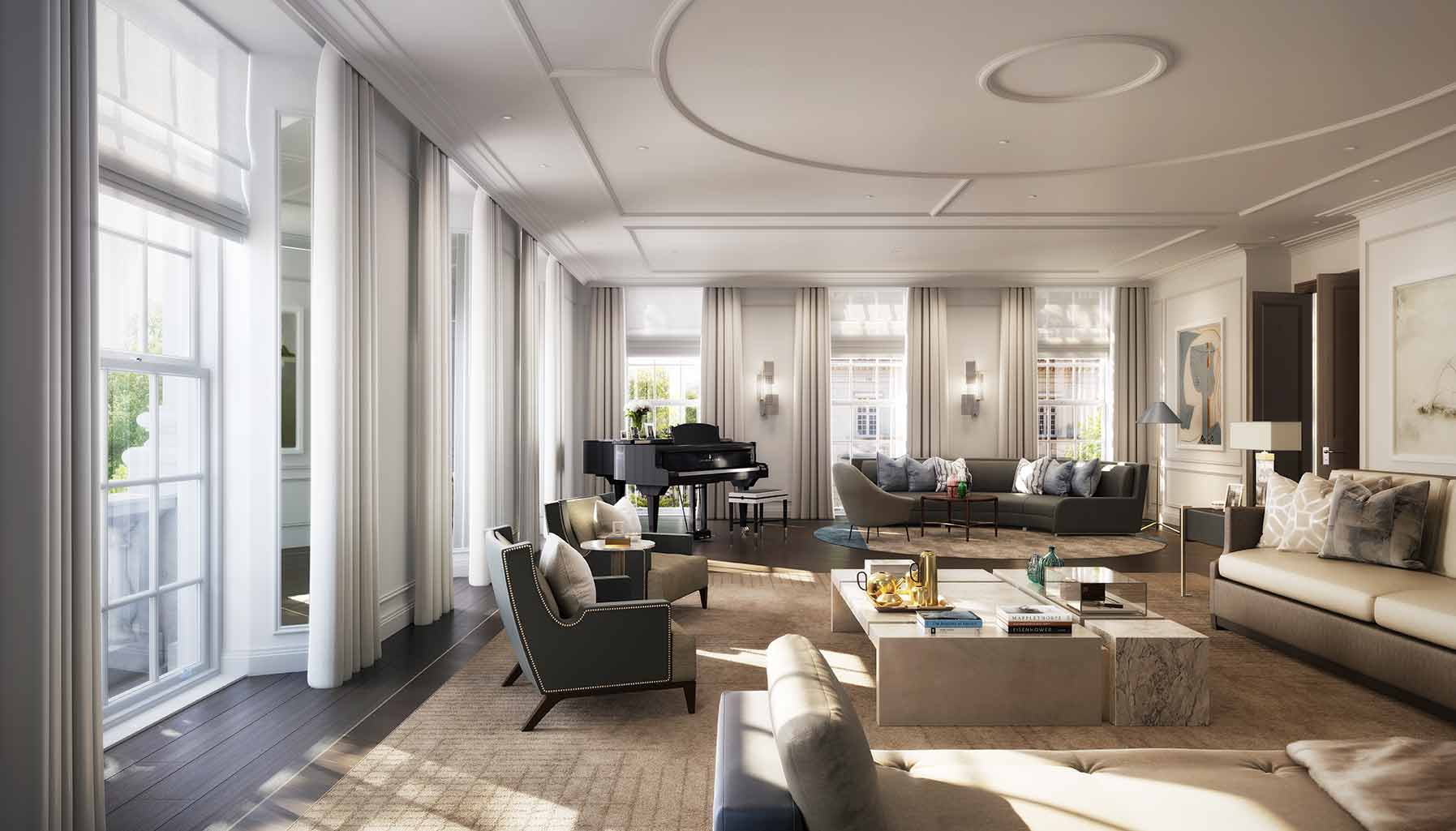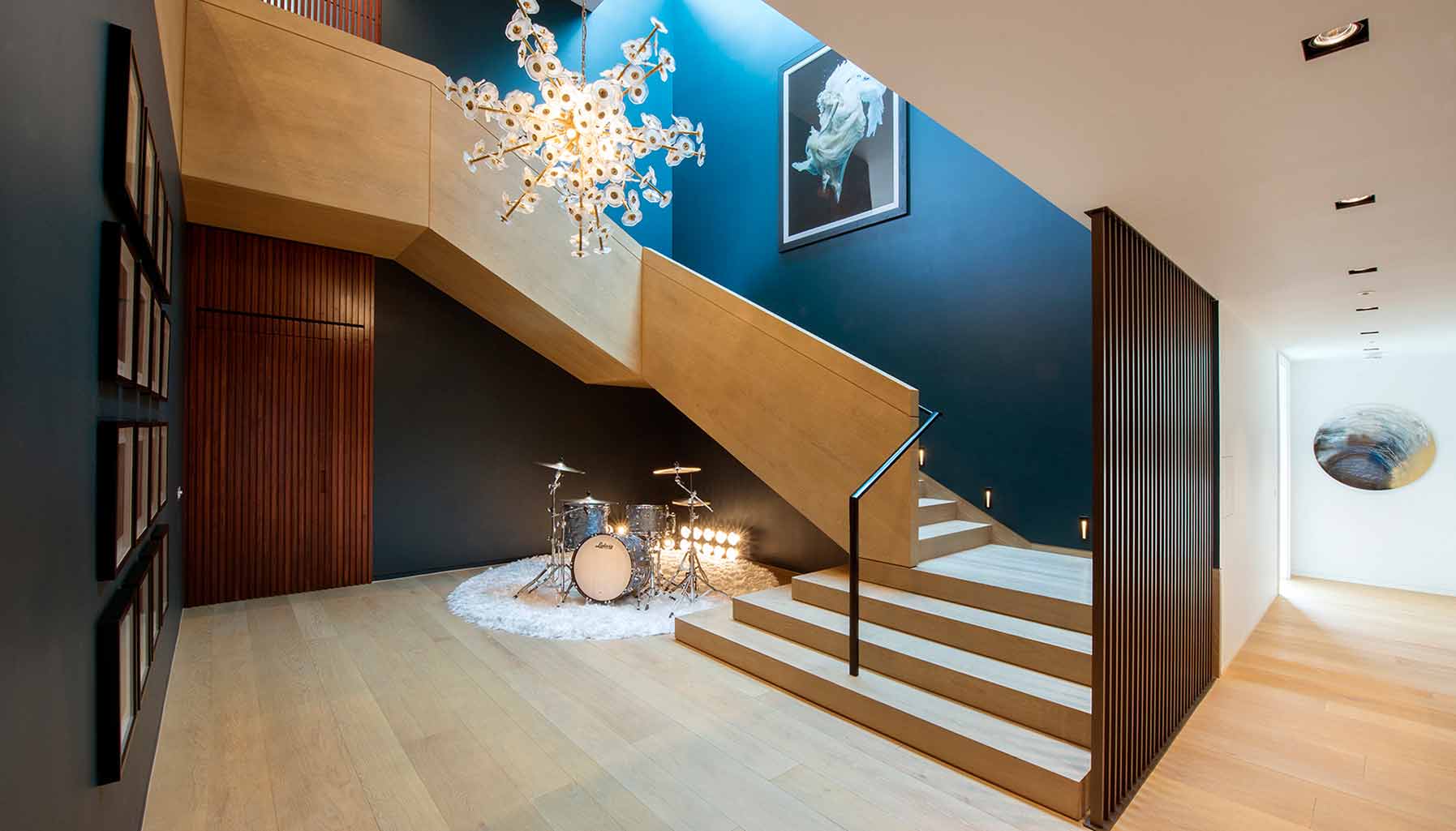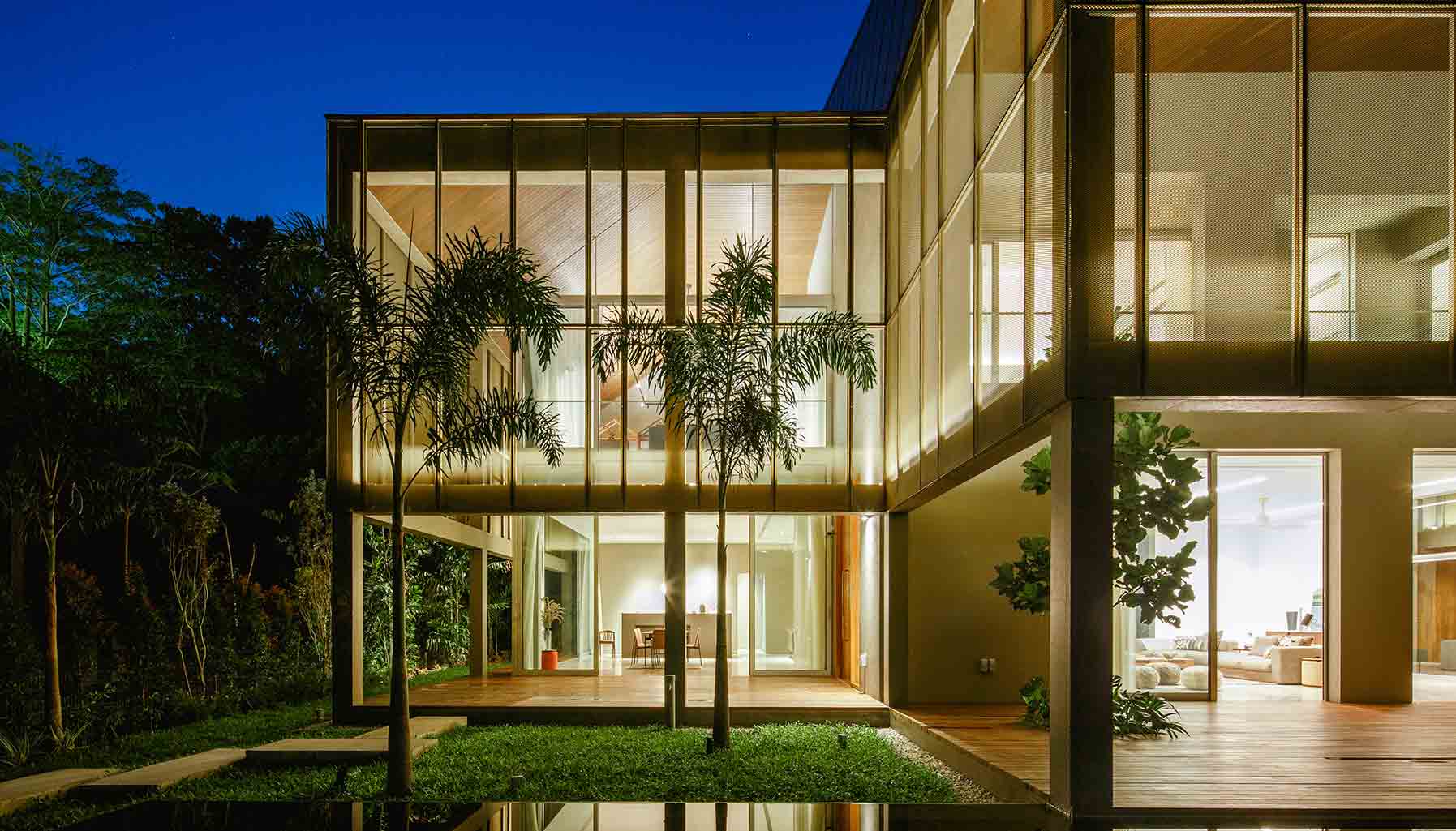Living for the city
On the Millbank bend of the Thames, a new development called Riverwalk has been completed by Ronson Capital Partners (RCP), which was founded by Gerald M Ronson of Heron International.
In the wake of Brexit, however, investors need to consider just how healthy London’s property market is, especially in the luxury segment. Real estate agency Savills doesn’t believe it will crash but is predicting some gloomy times ahead, dragging until 2019. Brexit may cause some inertia, but Savills believes that the appeal of London remains deep-rooted.

Developments such as Riverwalk maintain the optimism that London will persevere. Designed by architectural firm Stanton Williams, it looks like it belongs. The exterior’s flowing curves mimic the lines of the river, with the circular pattern repeated inside most of the 116 units. Lisa Ronson, commercial director of RCP, sums up the appeal. “We could have chosen to build a regular rectangular building. It would have been far easier and actually given us more space, but we felt we had to create something truly special to stand out.”
But it wasn’t always smooth sailing in achieving that ambition. Trouble came in the form of neighbours. London invests its residents with a great amount of power and they wield it strategically. This affects the entire gestation of a project such as Riverwalk – from approval to design to even minor things like the colour of hoarding.
It is the same sort of growing pains that The Heron had to undergo. Developed by Heron International prior to the formation of RCP, The Heron is a unique public-private partnership with the City of London that yielded a new concert hall for the Guildhall School of Music and Drama and the largest residential development in the City since 1974. Looking back, the success of this 284-unit project would have seemed assured, but it too had to convince a lot of naysayers.

Chief among those were residents of the neighbouring Barbican. They protested over every aspect of the project, from their ‘right to light’ to obstructed views. Each one of those had to be addressed, between architect David Walker, the City of London council and Heron International. Ronson vividly remembers going from apartment to apartment with spectrophotometry instruments and experts to prove that The Heron would not shroud them in perpetual darkness. Yet their claims still dictated the only form that it could take – a squat block next to a tall, thin tower.
Planning permission is always a challenge in London. Riverwalk is now complete, yet there are still complaints.
In this part of London, under Westminster City Council, arbitration Roger Davies, who was chair of the planning committee until the end of 2016. “My job is to mediate,” says Davies. “I have to give everyone a fair chance to be heard. We then work together with RCP to modify the design. Sometimes it works. But ultimately, I can’t please everybody and the decision I make is for the good of the city.” That includes anything from maintaining an optimal mix of properties to assuaging individual, sometimes selfish, grievances.
Those concerns had to be addressed to gain planning permission for Chiltern Place in Marylebone. In this distinctive, village- like area of London, residents viewed the prospect of a luxury high-rise with suspicion. “The only reason that planning for Chiltern Place passed,” says Davies, “was that it was replacing an existing high-rise. Without that, it would have faced far stiffer opposition.”
When complete, Chiltern Place will have a terracotta facade designed by PLP Architecture to blend into the Georgian surroundings. The interiors, masterminded by Tomasz Starzewski, are lush, airy and modern without being overbearing. It is an aesthetic balance that RCP has refined over the years. “The Heron was our first luxury residential project,” says Ronson, “and to be honest, it was probably over-specced. But we took what we learnt and poured that into Riverwalk, and what we learnt from Riverwalk, we are putting into Chiltern Place.”

But what about Brexit? “There has been a slowdown, no doubt,” says Ronson. “But we believe we are offering a quality product and there is always a market for that. Over 80 per cent of Riverwalk has been sold, and we have great performance in Chiltern Place. Our clients, too, aren’t flashy. Most of them are British or European, and while there is interest from Russia, Asia and the Middle East, it isn’t of the fleeting sort.”
RCP has cultivated a pedigree in selecting and developing its projects. These are homes built to be lived in, not to be traded for capital gains. The latter is ephemeral, the former enduring. Aiming squarely for ‘enduring’, properties such as Riverwalk – and developers such as RCP – are what London needs to weather the coming storm.






